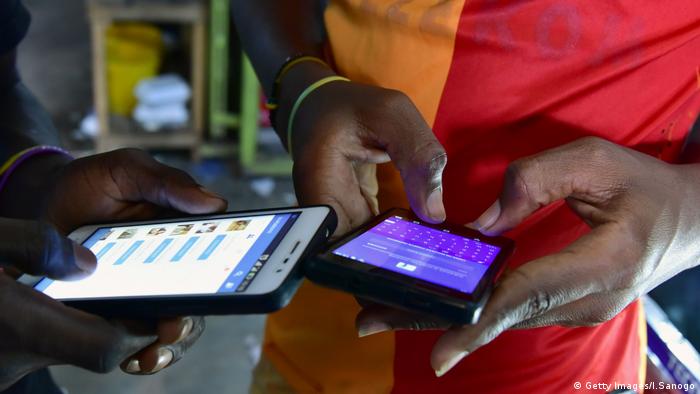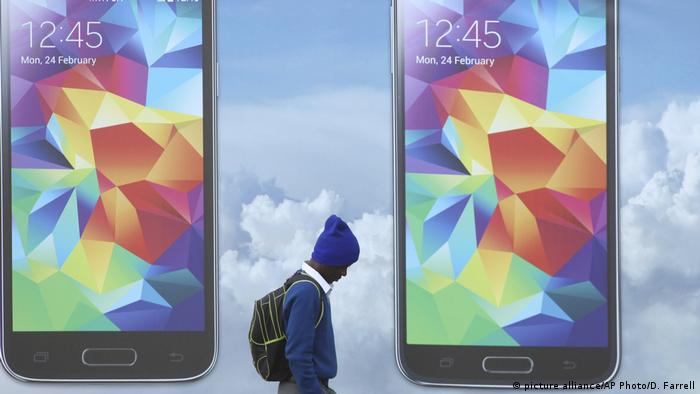African governments have recognized how you can draw from popular Internet media, a public utility, which collect Internet taxes. It is not only money, but also to control.

In March of this year, a new tax came into Tanzania in force: Since then, bloggers have to pay a registration fee to be allowed to contributions publish online. Thereafter, annual license fees are due. Cost: around 800 euros. This is slightly more than the annual Per capita income in the country. The government claims to “Unmoralität” and hate speech to stop. Anyone who does not pay the fee or not registered, can expect a sentence of up to 2,000 euros or one year in prison.
The idea is to levy a tax on the use of Online services, has quickly found imitators. And are not limited to the group of bloggers: Uganda rising since may, a daily fee of 200 shillings (about 5 cents) on each SIM card, with the Social networks like WhatsApp, Facebook or Twitter. Critics claimed that the tax served the purpose of political debates and the Opposition against President Museveni. Since August, Zambia, discussed a tax on Online calls, which are offered from services such as WhatsApp and Skype. This should protect the phone provider prior to loss of revenue. Kenya thought about since October, the excise tax for phone and Internet to increase services from ten to 15 percent.
Profits and control
Kuda Hove, legal officer with the Media Institute of Southern Africa in Zimbabwe, sees two reasons for the tax Trend. First: “The countries have recognized that one can draw from the use of the Internet money for the state.” However, as companies such as WhatsApp and Twitter could not be in one’s own country to their seat and therefore not taxed, would the governments have the money for the consumers. “This is a shame, because it is States with low Per capita income, where the Internet activities of the population should actually be supported, instead of restricting them,” says Hove.
Read also: Internet censorship in Africa: a danger for democracy and economic
The second and much more critical point is that governments wanted to have control of what will online. “It has been claimed, as a result, the circulation of pornography and Fake News, but I don’t buy the governments. I don’t see how a tax on Social Media, pornography or false news, should prevent, it would be rather a Anti-pornography or Anti-Immoralitäts-law,” says Hove.

The use of Smartphones could be due to the Internet tax is still more expensive
May Truong from the Freedom House, a US non-governmental organization for human rights and democracy, assessed the situation less dramatically: “Uganda has so far introduced as the only country to have Social Media control, and I think it’s here to soothe telecommunications companies are afraid to make losses.” The lead then, however, that the access to the Internet and the opportunity to network limited. “The long-term impact on the freedom of expression,” says Truong.
Danger for press freedom and freedom of expression
However, no matter what the reasons, “it brings people to shut up”, writes blogger Sandra Chimpala from Zambia. The alleged Intention of its government to the revenue of the telephone company protect, it holds a waste of time. “The phone company has reduced in Zambia just last year, the data prices dramatically, would have you done if you had known that the reflected on the business. The only control the government has.” Also the news reporting, is threatened Truong adds: “Both journalists and users must pay more for the volume of data, therefore, users will consider more carefully what you read, and journalists may not be able to research due to the cost so thoroughly.”
Also read: The long road to privacy in Africa
The General fear is that and monitored would be monitored, what will posted, “and that even whole pages of authorities deleted could be”, so Chimpala. This is, for example, in Tanzania the case. Under President John Pombe Magufuli, the East African country is going on since a Long time against the freedom of expression: journalists have been imprisoned, Newspapers temporarily closed, and Social Media users occupied because of criticism of the government with hefty fines. Something Similar to the Blogging-license there is in Tanzania for Newspapers since 2016: The Media Services Act required that Newspapers apply for annual license and it allows officials to close media companies in breach of their authorisation.
The Use of the resistance
“In Tanzania, the Blogging tax indirectly is to turn people offline. So the freedom of expression and access to the Internet should be controlled,” says Hove. “And this is a smart move. Because if the governments are confronted with the fact that they limit the freedom of expression, then you can say that you need to cover a deficit in the finances, in order to cover up the true Background.” From the government point of view, a model for success that could soon be followed by others.
In addition, many people would not see the connection between government-mandated taxes, more expensive data packages and their Internet usage behavior. Here there is urgent need of enlightenment, Hove: “The people must fight together for change in such States.” In Zambia there is already a concentration of bloggers, who work under the Hashtag #OpenSpaceZM to ensure that the Internet remains open, with Slogans such as “freedom of expression. My Right. Your Right. Our Right”. That such initiatives can have success, in Benin. The government attempted to levy a General tax on the used data volume and more specifically to messages and calls. But they had made the bill without the Social Media users. The resistance of #TaxePasMesMo (“stop, my Megabytes to tax”) brought the project to the Tip.